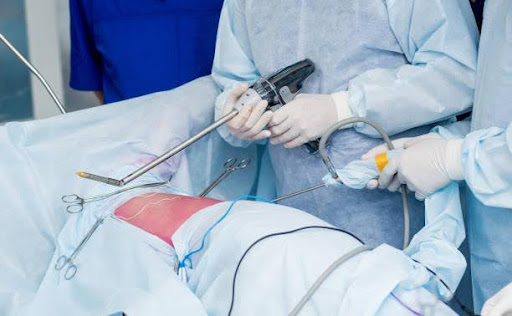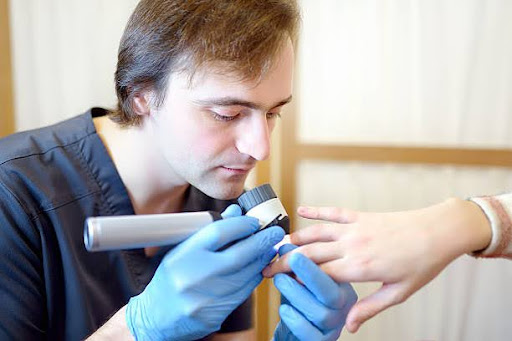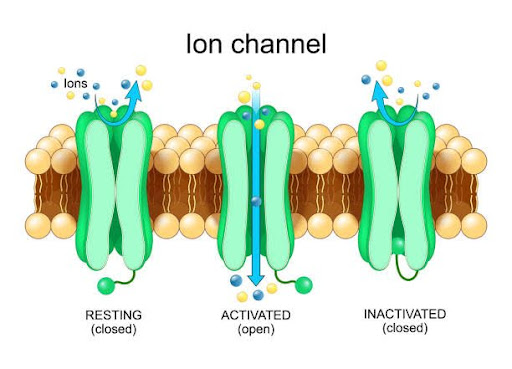Cancer Treatment Centre Innovations: What’s New in Oncology Care
Cancer treatment options are developing fast and cancer centers around the world are adopting new methods to support better results for patients. Technology and medical research continuing to develop have made modern oncology care more personal, faster and easier to use. Thanks to advancements at specialized cancer centers, both patients and families are now seeing new hope in the ways we tackle this complex disease.
Modern treatments tailored to a person’s cancer
Personalized care plans have become a major advance in treating cancer. It is now recognized that cancer is not one illness and patient’s conditions are looked at on the molecular level to choose the best treatment. Martin discusses how cancer treatment centres examine patient tumors using both genomic testing and analysis of biomarkers. Because of this, oncologists can select treatments that impact only the selected mutations, making treatment more successful and safe.
Prominent cancer institutions are now paying special attention to precision oncology. When specialists know the tumor’s genetic profile, they can prescribe targeted therapeutic strategies such as immunotherapy. They are working especially well for cancers such as melanoma, lung cancer and certain breast cancers. Focusing on personalized care helps patients do better and avoids the need to test many different drugs.
The Place of Immunotherapy in Today’s Cancer Treatment

Treatments using immunotherapy have gained importance in the past few years. The use of this strategy helps the body’s immune system detect and target cancer. Unlike chemotherapy which may harm normal tissues, immunotherapy is meant to cause less damage. Many cancer centres are including immunotherapy in their usual practices for advanced and hard-to-treat cancers.
A number of promising immunotherapeutic approaches such as checkpoint inhibitors, CAR-T cell therapy and cancer vaccines, are being used right now. Hematology therapies have improved treatment outcomes for blood cancers and specialists are trying to find new ways to apply them to solid tumors. Since it is becoming clear that immunotherapy treatment works, more cancer centres are creating the systems and conducting research to provide these treatments to more patients.
Artificial Intelligence is now being used in cancer diagnosis.
Improved accuracy and faster diagnosis of cancer have become possible by adding artificial intelligence (AI) and machine learning to oncology care. A lot of advanced cancer centers use AI-driven tools for image, slide and DNA data analysis. Thanks to genetics, misdiagnosis is less likely and the disease can be detected at an early stage, improving a person’s survival.
It is also helping medical professionals to predict how well a therapy will work and what treatment options should be used. Considering large collections of patient data, AI algorithms encourage oncologists to use information for better treatment results. It is becoming popular for comprehensive cancer care centres to use digital health technologies and AI to give patients the best possible treatment.
Surgeries that Use Fewer Invasive Techniques

Surgical oncology is now using minimally invasive procedures more often in leading cancer centres. Both laparoscopic and robotic-assisted surgeries result in better precision, tend to be less invasive and let patients heal more quickly. Minimally invasive procedures usually result in less discomfort and fewer health problems for patients than traditional surgeries.
With robotic platforms, surgeons are better able to see and control surgery in the field of oncology. Their greatest advantages are seen in procedures for prostate, gynecologic and head-and-neck cancer which are delicate. Because technology keeps progressing, cancer centres will keep adding new, less invasive surgical instruments for their patients.
Comprehensive and wide-covering Cancer Care
Implants and other modern medical approaches are used, but cancer treatment centres also concentrate on caring for the whole person. When a team of oncologists, surgeons, radiologists, nutritionists, mental health professionals and palliative care specialists works together, patients have access to full support from start to finish.
Now, most cancer treatment plans include help for pain, psychological counseling, nutritional advice and rehabilitation. A variety of centres provide wellness activities, yoga and mindfulness therapies to help patients with the mental and emotional difficulties they encounter after a cancer diagnosis. Using this model helps patients enjoy a better quality of life and become more engaged with the care they receive.
Increasing Access to Healthcare by Telemedicine and Remote Monitoring

The speed at which telemedicine expanded during the pandemic applied to cancer treatment centers, too. Virtual consultations are now common in oncology and permit patients to meet with doctors without leaving their homes. It is especially good for residents of rural or underprivileged areas, as it helps them avoid many hurdles to get specialized care.
Digital tools and equipment now allow healthcare staff to monitor patients’ health data online, including their vitals, how they take their medicine and any unwanted treatment side effects. This early action ensures that healthcare providers address any problems which protects the safety and success of outpatient cancer care. Telehealth advancements are expected to lead cancer centres to add more digital options to help their patients.
Progresses in Radiation Therapy
In cancer therapy, radiation therapy is crucial and new inventions have sharply increased its safety and accuracy. With proton beam therapy, stereotactic radiosurgery and image-guided radiation therapy (IGRT), doctors can work in a way that helps them target only the tumor and avoid nearby healthy tissue. Because of this, side effects are lower and treatment is more effective.
To give patients the best care, modern cancer treatment centres are fitting their facilities with the latest types of radiation systems. Adaptive radiation therapy which updates treatment as the tumor or patient’s anatomy changes, marks an important step forward in radiologic oncology.
Clinical Trials are important steps for creating future therapies.
Being involved in clinical trials is an important part of cancer care at top treatment centers. Trials provide an opportunity for patients to try new and uncommon therapies. Many new cancer treatments are made possible by the clinical research done on drugs, gene therapy and advanced immunotherapy.
Cancer patients at the top centres commonly gain from being involved in research projects which are overseen by proper safety rules. What is learned in clinical trials helps oncology and offers hope to patients dealing with serious illness.
In short, we are now in an era when there is real hope for healing.
These centers now provide more than chemotherapy or radiation; they act as centers of revolutionary science, care and new treatments. Because of personalized medicine, AI-based diagnosis, improved surgery and whole-patient care, these centres are changing how cancer is tackled and treated. Innovations taking place in oncology care give people with cancer and their families new hope and a clearer path to positive outcomes. As scientists discover new research results, the future of cancer care is getting better.




Если вы собираетесь на поездку в Потсдам и ищете информацию, что посмотреть за день, то стоит без сомнения посетить Сан-Суси, Голландский квартал Потсдам и дворец Глиникке. Для почитателей природы и умиротворения отлично станет идеальным японский сад в Дюссельдорфе или блуждание по паркам Германии, таким как лихтенхайнский водопад и крепость Кёнигштайн.
Кроме того рекомендую зайти на барахолку в Дюссельдорфе — блошиный рынок с занимательными находками по адресу фантазияленд . А если едете с детьми, то фантазия ленд предложит весёлые аттракционы, цены на билеты и сведения можно узнать на их основном сайте. Независимо от интересов, Германия богата на достопримечательности, от замков Берлина до природных маршрутов немецкой дороги сказок.
Если задумали отдых на озере Шира, предлагаю обратить внимание на базы отдыха на Шира, которые располагают разные варианты проживания. В качестве примера, база отдыха Шира Жемчужный выделяется уютными домиками и даже бассейном, что делает отдых комфортным и увлекательным. Для тех, кто подбирает жилье вблизи природой, базы отдыха Шира с видом на озеро — отличный выбор, а чтобы детальнее понять варианты, можно узнать информацию здесь: базы отдыха на шира .
Наиболее интересны базы отдыха Три Звезды Шира и Бегущая по Волнам, которые предлагают качественный сервис и различные развлечения. Если планируете выяснить, где остановиться у озера Шира или актуальна цена на домики в Шира Жемчужный, необходимо изучите впечатления и фото на форумах, а также обратите внимание на такой особенный объект, как Сад Камней Шира, что внесет изюминку вашему отдыху.
Добрый день всем! Готовлю поездку в Таиланд и хочу понять, сколько цена путёвка в Таиланд и какой количество денег брать на 10 дней — важно узнать, сколько cash брать в Таиланд на кафе, экскурсии и развлечения, главным образом на Пхукете и Самуи. Плюс к этому хочу понять, когда идеальнее ехать в Тайланд (Пхукет), опираясь на сезон фруктов, погоду и экскурсии, а то впечатления и советы видятся разные. В частности, полезно знать, как ориентироваться в аэропорту Пхукета и сколько обойдется трансфер между Пхукетом и Самуи, учитывая паром и такси, все это сказывается на общий план поездки.
Если кто-то недавно был на Патонге, расскажите, стоит ли посмотреть рынок Патонг и магазины, а также где предпочтительнее менять деньги — слышал, что есть самый оптимальный обменник на Пхукете. Насколько без проблем брать в аренду байк без прав и какие массажные салоны на Пхукете в самом деле качественные? Дополнительно ищу советы по маршрутам и интересным местам типа Райли Бич и пятиминутка по самым прекрасным островам Таиланда. Для тех, кто стремится понять подробностями — интересная информация здесь: рынок патонг .
В случае если вы готовитесь к поездку в Таиланд, полезно заранее понять, какой остров выбрать — Пхукет или Самуи. Самуи отличается своими прекрасными пляжами, и на карте Таиланда легко найти лучшие пляжи Самуи, которые отлично подойдут для безмятежного отдыха. Для тех, кто любит историей, полезно вспомнить про цунами в Таиланде 2004 года: на Пхукете и Самуи поныне можно встретить фото и рассказы, относящиеся с этим событием.
При подготовительных мероприятиях к поездке советую изучить вопросы обмена валюты на Пхукете и сколько денег иметь при себе в Таиланд на 10 дней, а также изучить правила въезда в страну в 2025 году. Для туристов будет актуальна информация об аренде байка на Пхукете — это удобный способ передвижения. Материалы, включая карту Таиланда с островами и подсказки по маршрутам, можно изучить здесь карта тайланда с островами на русском языке .
In the realm of online gambling, many players seek options to traditional sites. casinos not on GamStop, https://www.ertaccounting.com/casinocasino/exploring-non-uk-online-casinos-your-ultimate/ offer freedom for those looking to enjoy wagering without restrictions. With numerous games and bonuses, these casinos cater to gamblers wanting to enjoy themselves without limits.
In competitive markets, CRO and SEO are key advantages for platforms such as LiquidWeb. Good breakdown here:
https://www.myob.com/au/blog/small-business-seo-guide-getting-found-in-google/
Finding reliable online gambling sites is crucial for players. One option is safe casinos not on GamStop, https://www.toplegacy.com/exploring-british-casinos-not-on-gamstop/, which offer a range of games without restrictions. Experience thrilling gameplay and deals in a safe environment.
In the world of gaming, non UKGC online casinos, https://dev.fighttoendcancer.com/2026/exploring-non-uk-based-online-casinos-a/ offer unique experiences. These platforms deliver various games, often with higher bonuses. Players can uncover a wider selection, enjoying diverse gaming options that appeal to different tastes and preferences, ensuring entertainment and excitement for all.
Если разыскиваете прямые непрерывные рейсы из Еревана в Европу или хотите узнать, куда можно вылететь из Еревана выгодно, нужно уделять внимание на бюджетные предложения и аэропорты как Болгарии, Польши, так и Чехии. Чрезвычайно удобно искать дешевые авиабилеты из Москвы за границу, охватывая направления в Чехию, Новую Зеландию или даже Доминикану, а также акционные предложения из Москвы позволят сберечь на перелёте.
Людям, кто летит из Ташкента, нужно знать о прямых непрерывных рейсах из Ташкента в Европу и большой сети аэропортов ОАЭ и Израиля. На сайте аэропорты англии можно получить текущую информацию и присмотреть подходящие авиабилеты в Прагу, Берлин или Анталию с лучшими lowcost вариантами. Также не обойдите вниманием рассмотреть аэропорты Англии, Норвегии и Албании, чтобы обогатить список направлений для дешевых путешествий.
Fishin’ Frenzy casinos, https://www.emkan.me/exploring-fishin-frenzy-megaways-a-deep-dive-into-5/ – Explore the fun at Fishin’ Frenzy casinos offer entertaining slots where players may discover rewarding prizes. Dive into the fun and reel in rewards today!
Finding the right platform for entertainment is essential. With casino online not on GamStop, https://idki.net.id/?p=30390, players can enjoy a vast array of games. Many prefer this option due to the choices available. Enjoy numerous options and enticing bonuses that keep the fun going!
В случае если вы планируете странствия и вы рассматриваете прямыми рейсами из многих городов, необходимо обратить внимание на программы по аэропортам Филиппин, Зимбабве, Дании и Венесуэлы. В частности, доступны прямые рейсы из Стамбула в Европу и Анталию, а также рейсы из Еревана в европейские направления города, что может серьезно облегчить переезды. Для нахождения самых экономных авиабилетов из Москвы, Лондона, Стамбула или Минска, а также из этих городов, как Екатеринбург и Вроцлав, можно использовать сервис ресурс прямые рейсы из анталии в европу , где есть информация о экономичных вариантах и выгодных билетах.
К тому же, рекомендуется знать, что аэропорты США, Польши, Албании и ОАЭ гарантируют большой выбор направлений, с учетом популярные города в Таиланде, Доминикане и Нидерландах. Заметим, что в определенных странах, как на Мальте или в Англии, количество аэропортов делает возможным легко находить оптимальные маршруты. Если вы рассматриваете куда дешево улететь из Москвы, Дубая или Стамбула, следует изучить программы по лоукостам и прямым рейсам, чтобы максимально сэкономить на перелетах.
Finding a credible gaming site can be challenging. However, trusted non GamStop casino, https://staging.actionelearning.eu/discovering-online-casinos-not-affected-by-gamstop/ options provide users a way to enjoy their favorite games without restrictions. Experience engaging gameplay and top bonuses today!
Exploring the universe of international casinos online, https://caloriedeficitcalculator.org.uk/foreign-casinos-accepting-uk-players-a/ offers players a distinct opportunity to enjoy multiple games. Whether you prefer video slots, poker, or blackjack, there’s something for everyone. By using advanced technology, such sites provide a reliable environment for gamers worldwide.
online casino offshore, https://www.aiyixing.org.cn/zh_cn/the-evolution-of-overseas-casinos-trends-and/ открывает доступ игрокам получить удовольствие от разнообразными вариантами азартных игр. Надежность онлайн-казино зависит от контроля. Гемблеры могут выигрывать финансовые средства в комфортной обстановке.
In recent years, the emergence of non GamStop bookies, https://www.toplegacy.com/discovering-non-gamstop-bookies-your-guide-to/ has transformed the betting landscape. Many players seek new opportunities beyond the restrictions imposed by GamStop, providing a wider gambling environment.
In case you’re trying to identify “what season am I” in terms of seasonal color analysis, initiating with your skin tone and undertone is critical. For example, a deep summer color palette operates great for those with an olive skin tone or yellow undertone skin, uniting cool and muted shades that complement colors like deep blues and soft roses. Resources like the colour analysis app or an online quiz can facilitate this process, giving insights into skin tone charts and vein test undertones to help determine your best colors, whether it’s the soft summer color palette, deep winter color palette, or light spring color palette. For a actionable guide, check out dark winter colour palette to investigate palettes and analysis tips customized for various skin tones such as amber skin tone, pale skin, or warm beige skin tone.
It’s also helpful to consider advanced options like color analysis pro for a more comprehensive breakdown; though some users examine how to cancel subscription plans if they want to sample the service before pledging. Whether you’re curious about the best colors for pale skin or want to identify the right clothing colors for yellow skin tone females, grasping your seasonal color palette can really boost your wardrobe choices. Zero-cost color analysis tools, apps, and quizzes provide a great starting point to explore skin color types and determine flattering hues that suit your natural coloring, from deep summer celebrities to those with reddish undertone skin.
В том случае если планируете поездку в Таиланд, важно заранее узнать, сколько стоит отдых в Таиланд и сколько брать денег в Таиланд на 10 дней, принимая во внимание расходы на размещение, питание и экскурсии. Максимально популярен Пхукет, где можно увидеть рынок Патонг, магазин на Патонге и попробовать экзотические фрукты Таиланда. Для удобства изучите, как перемещаться в аэропорту Пхукета и правила въезда для россиян в 2025 году. Более детально о бюджете и лучших местах ознакомиться можно здесь рынок патонг .
Что касается времени для поездки, то оптимальный сезон для отдыха и экскурсий на Пхукете — с ноября по март. Если планируете ехать из Пхукета на Самуи самостоятельно, обдумайте о пароме или трансфере, время в пути примерно 2-3 часов. Также не оставьте без внимания про аренду байка (имейте в виду на правила) и массажные салоны, которые придают отдых ещё приятнее. Точно узнайте, сколько нужно денег, чтобы насладиться отдыхом в Тайланде без сюрпризов, и что стоит посетить, чтобы ваша поездка была впечатляющей.
Many players are seeking alternative gambling options, and casinos not on GamStop, https://staging.beautifulpeps.com/2026/01/10/discover-sites-not-using-gamstop-for-unlimited/ are gaining popularity. These platforms offer unique experiences that cater to those looking for alternative gaming. With engaging games and generous bonuses, the appeal is hard to ignore. Exploring casinos not on GamStop allows players to enjoy their favorite games without restrictions.
new social casinos, https://store.ysgt.cn.com/exploring-online-social-casinos-a-new-era-of/ are transforming the way we interact with gaming. Players can have fun with exciting games while bonding with friends online. These platforms blend social elements and well-known casino games for a unique experience.
Casinos Non on Gamstop, http://metdem.com.tr/the-rise-of-non-gamstop-casinos-a-new-era-in-2/ offer a unique gambling experience|provide an exceptional betting atmosphere|deliver a distinct gaming environment|feature a singular wagering landscape. Players can explore various games|try out numerous options|engage with different choices|discover multiple alternatives without restrictions.
Austen’s work is often categorized as romance, but it is also a comedy of manners. The absurdities of characters like Mrs. Bennet and Mr. Collins provide endless entertainment. To catch the subtle humor, reading the text is essential. A digital copy allows you to zoom in and focus on the dialogue. If you are in need of a Pride and Prejudice PDF, you are joining a vast community of admirers. Our site is designed to enhance your appreciation of the book. We bring the focus back to the words that have charmed the world for two centuries.
Casinos Non Gamstop, http://www.nave.ufc.br/discovering-casinos-not-on-gamstop-uk-an/ offer players a unique experience that they can enjoy thrilling games without the usual restrictions. These casinos allow for more freedom, making gaming accessible for everyone. Join the excitement and explore a world of opportunities!
Casinos Not on Gamstop UK, https://beta.volkvision.info/2026/01/12/discover-non-gamstop-uk-casino-sites-a-2/ offer unique experiences for players seeking freedom. These online platforms provide a choice for those who feel restricted by gambling restrictions. Explore a variety of activities and enjoy bonuses tailored for you! With Casinos Not on Gamstop UK, gaming is tailored to your style. Discover entertaining adventures and engage with similar gamblers worldwide.
Casinos Non on Gamstop, https://luckydistributions.com/2026/01/12/explore-the-thrilling-world-of-casinos-not/ offer players an opportunity to enjoy gaming without restrictions. Such casinos provide diverse games, ensuring excitement and thrill. Players can dive into new titles and appreciate the gaming atmosphere.
Casinos Not on Gamstop, http://www.group-images2.com/2026/01/11/explore-uk-non-gamstop-casinos-your-ultimate-guide/ offer players an exciting alternative to traditional online casinos. These platforms offer access to a wide range of games without the restrictions of Gamstop. Find out unique bonuses and diverse gambling options.
Casinos Not on Gamstop, https://gwc.spottedcow.media/2026/01/12/exploring-non-gamstop-casino-sites-your-ultimate/ offer players exciting options for online gaming. These sites offer a chance to enjoy your favorite games without the restrictions of Gamstop. Explore various gaming choices and bonuses that enhance your experience today.
Casino Sites Not on Gamstop, http://www.pzksbs.pl/discovering-casino-sites-not-on-gamstop/ offer players a unique chance to gamble without restrictions. These platforms provide numerous opportunities for enthusiasts. Betters can enjoy stimulating experiences. Join in the fun today! Casino Sites Not on Gamstop create a unique gaming environment that keeps members entertained.
Casinos Not on Gamstop UK, http://esli.com.dz/v2/2026/01/12/discovering-non-gamstop-casinos-a-guide-for-2/ offer players a chance to enjoy gaming without self-exclusion restrictions. These platforms provide a wide selection of games, ensuring an exhilarating experience. With dynamic payment options, players can easily manage their funds.
Автосервис Тойота в Москве предлагает широкий спектр услуг. В этом автосервисе вы найдете опытных техников, которые знают все о Тойота.
Если вам нужен качественный и надежный автосервис Toyota, мы предлагаем широкий спектр услуг для вашего автомобиля.
Для Тойота необходим высокий уровень квалификации. Все работники имеют соответствующую квалификацию и опыт.
Техническое оснащение сервиса соответствует самым высоким стандартам. Это позволяет проводить диагностику и ремонт на высшем уровне.
Обращаясь в автосервис Тойота, вы можете рассчитывать на высокое качество услуг. Ваше доверие для нас — наивысшая награда.
UK non Gamstop casinos, https://faithheartmagazine.com/discover-premier-casinos-not-on-gamstop/ offer players the chance to enjoy gaming without the restrictions imposed by Gamstop. Such casinos provide enthusiasts to explore numerous games, offering a thrilling experience. Selecting UK non Gamstop casinos, players can take pleasure in more freedom and choices in their gaming journey.